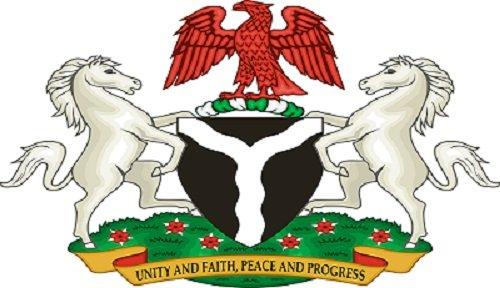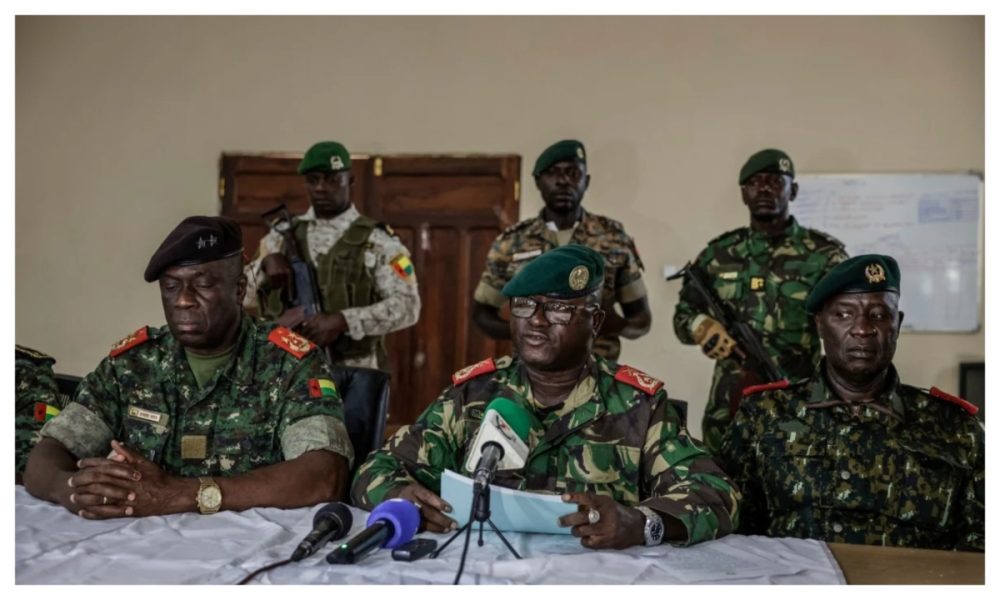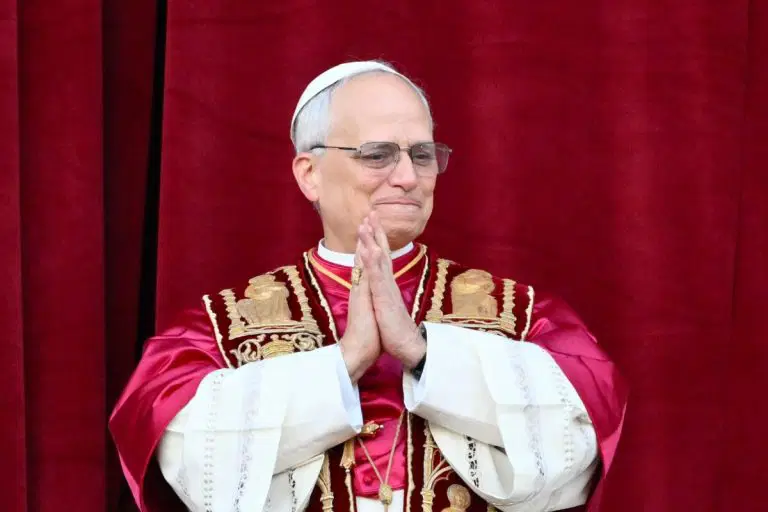Headline
Over 1m Nigerians Receive N5,000 Cash Monthly, 10m Pupils Fed Daily – FG

The Federal Government declared on Thursday that 1,940,004 vulnerable Nigerians were currently receiving N5,000 cash gifts every month.
The Minister of Humanitarian Affairs, Disaster Management and Social Development, Hajia Sadiya Farouq, said this at a One-Day Stakeholders’ Retreat On National Social Investment (Establishment) Bill organised by the Senate Committee on Social Duties.
Farouq was represented by the Permanent Secretary of the ministry, Dr. Nasir Gwarzo.
The minister explained that the objective of the National Social Investment Programme Establishment Bill was to provide a statutory and institutional framework for the implementation of the National Social Investment Programme.
READ ALSO: JUST IN: I’m Not Aware Of Tinubu’s Reconciliatory Moves – Atiku
She noted that the NSIP was created in 2016 by the President, Major General Muhammadu Buhari (retd.), to address social and economic inequalities and alleviate poverty among Nigerians.
According to her, there are four social support programmes that are meant to empower the poorest and most vulnerable Nigerians to enable them to attain an acceptable standard of living.
She said the NSIP was directly and indirectly impacting the lives of poor Nigerians through its four cluster programmes .
These, she said, included the N-Power Programme, Government Enterprise and Empowerment Programme, the National Home Grown School Feeding Programme, and the Conditioner Cash Transfer Programme.
The programmes, she added, were designed to serve as various forms of social safety nets specifically targeting those at the bottom of the social ladder who require some form of assistance to enable them to become productive members of society and prevent more people from falling below poverty line.
She said, “A wide range of Sustainable Development Goals including poverty reduction, education, health, social inclusion and empowerment can be achieved through the NSIP.
“Section 17(3) of the constitution provides that the State shall direct its policy towards ensuring that all its citizens without discrimination have the opportunity of securing adequate means of livelihood and ensuring provision is made for public assistance in deserving cases of need among others.
READ ALSO: 2023 Elections: Youths Warn Against Attempt To Arrest Dunamis Pastor, Paul Enenche
“Contributory social protection schemes such as Social insurance, health insurance, and the pension scheme are all backed by legislation. The laws are, The Nigeria Social insurance Trust Fund Act, the National Health Insurance Authority Act, and the Pension Reform Act.
“The NSIP, which is a non-contributory social protection scheme is not backed by any law and this underscores the need for it to also have a piece of legislation.
“Since the inception of the NSIP in 2015, one million youths have been empowered through the N-Power Programme and additional 500,000 others are currently undergoing various training under the programme as approved by the President.”
She noted that the cash transfer has enrolled 1,975, 381 poor and vulnerable households from the National Social Register into a National Beneficiary Register across the country.
She added that the Cash Transfer supports the poor and vulnerable to improve consumption and develop savings skills to reduce poverty and build their resilience to withstand shocks.
“A total of 1, 940, 004 beneficiaries are currently receiving cash transfers each month.
“Public Primary Schools across the country have witnessed an unprecedented number of new enrollments as a result of the National Home Grown School Feeding Programme.
“The programme is currently feeding 10 million pupils in over 66, 000 public schools across Nigeria. The programme is gradually reducing cases of out-of-school children nationwide,” she added.
According to her, 2,653,333 beneficiaries have accessed the GEEP loans under three categories including Trader Moni, Market Moni and Farmer Moni.
READ ALSO: ICPC Arrests Man Ferrying N2m To Politician
“A total of 1, 142, 783 individuals across the country have registered to benefit from the second round of GEEP under the three loan programmes”
The Chairman of the Senate panel, Senator Yusuf Yusuf, explained that the retreat was aimed at bringing together critical stakeholders from the executive arm of government to be at par with the legislature on the proposed legislation.
Yusuf said, “Information is a very important tool for legislation. Since the government policy emanates from legislation, we invited critical stakeholders from the ministry and other agencies so that they can furnish the committee with vital information that would enable them to come up with a robust legislation for the NSIP establishment.”
PUNCH
Headline
Coup: Guinea-Bissau Junta Releases Six Held Opposition Politicians

Guinea-Bissau’s ruling junta on Tuesday released six members of the political opposition who had been detained since a coup last month.
The six freed opposition members are said to be close associates of Domingos Simoes Pereira, head of the PAIGC party that led the country to independence in 1974.
Pereira has been in custody since the coup.
In a statement by the High Military Command, the junta’s governing body, the releases are described as a sign of good faith and a step towards the return to constitutional normality and respect for international rights.
READ ALSO:Why West African Troops Overturned Benin’s Coup But Watched Others Pass
The army seized power on 26 November after ousting outgoing President Umaro Sissoco Embalo in the wake of a presidential vote.
After taking over, the military suspended the electoral process and announced it would take control of the West African country for a period of one year.
Recall that another opposition candidate, Fernando Dias, took refuge in Nigeria’s embassy, which granted him asylum, while Embalo fled the country after being briefly detained by the military at the time of the coup.
Meanwhile, Senegal’s Foreign Minister, Cheikh Niang, led a delegation to Guinea-Bissau, where he met with detained opponents and requested their release.
Headline
7 Territories Still Under Colonial Rule

Even though most nations became independent in the last century, some territories are still ruled by other nations.
Contents
1. Western Sahara
2. Guam
3. American Samoa
4. United States Virgin Islands
5. Falkland Islands / Malvinas
6. Gibraltar
7. Bermuda
Many of them remain on the United Nations list of non-self-governing territories, meaning they have not completed the process of decolonization. These places usually depend on bigger countries for laws, passports, defence, or political control.
In this article, Nigerian Tribune highlights 7 territories still under colonial rule:
READ ALSO:Nigeria Ranks World’s 102nd Happiest Nation, US, Germany Not Among 20 Top Counties
1. Western Sahara
Western Sahara remains one of the world’s biggest unresolved colonial issues. Morocco controls most of the territory, but the Polisario Front wants independence for the Sahrawi people. The UN is still trying to help both sides agree on a peaceful solution.
2. Guam
Guam is an important US territory in the Pacific, used heavily for American military operations. The US oversees its defence and foreign relations.
People living there are US citizens, but they cannot vote in presidential elections and do not have full representation in Congress.
READ ALSO:FULL LIST: US To Review Green Cards From 19 ‘Countries Of Concern’ After Washington Shooting
3. American Samoa
American Samoa has more local control than Guam, but the United States still decides immigration, defence, and foreign affairs.
Residents are considered US nationals and must apply if they want full citizenship.
4. United States Virgin Islands
The US Virgin Islands have their own legislature, but the United States makes major constitutional and political decisions. The territory depends heavily on US federal support.
5. Falkland Islands / Malvinas
The Falkland Islands remain controlled by the United Kingdom (UK), but Argentina has long disputed this claim, having been in control of the Islands for a few years before 1833.
The people living there voted strongly to stay British, yet the sovereignty dispute continues to appear in the UN.
READ ALSO:Six Countries With Highest Number Of Billionaires In 2025
6. Gibraltar
Gibraltar sits at the Southern tip of Spain. The United Kingdom controls it, but Spain insists the territory belongs to them.
Gibraltarians have repeatedly voted in favour of remaining British, but the dispute is still discussed within the UN Decolonisation Committee.
7. Bermuda
Bermuda is a British Overseas Territory situated in the North Atlantic Ocean. Although it manages most of its own internal affairs and enjoys a strong economy with modern facilities, the United Kingdom still handles its defence and represents it in global matters.
Headline
Russia-Ukraine War: Pope Leo Calls For Global Christmas Truce

Pope Leo XIV on Tuesday renewed his call for a global truce on Christmas Day, saying he felt “great sadness” after Russia “apparently rejected a request” for a pause in fighting.
Speaking to reporters at his residence in Castel Gandolfo near Rome, the Pope urged all sides involved in conflict to observe at least one day of peace.
“I am renewing my request to all people of goodwill to respect a day of peace — at least on the feast of the birth of our Saviour,” Leo said.
Recall that Russia invaded Ukraine in February 2022 and has repeatedly turned down calls for a ceasefire, arguing that any pause would give Ukraine a military advantage.
READ ALSO:Russian Strikes Kill Five In Ukraine, Cause Power Outages
“Among the things that cause me great sadness is the fact that Russia has apparently rejected a request for a truce,” the pope said.
Referring to conflicts worldwide, Leo added, “I hope they will listen and there will be 24 hours of peace in the whole world.”
The appeal came as fighting continued in eastern Ukraine. On Tuesday, Ukrainian forces withdrew from a town after heavy battles with Russian troops. Russian strikes killed three civilians and left thousands without power during winter temperatures.
READ ALSO:Trump Blasts Ukraine For ‘Zero Gratitude’ Amid Talks To Halt War
There was no indication of progress toward ending the war after separate meetings last weekend in Miami between the United States officials and negotiators from Russia and Ukraine. The conflict is nearing four years with no settlement in sight.
Earlier this month, Pope Leo met Ukrainian President Volodymyr Zelensky. When asked whether he would accept Zelensky’s invitation to visit Ukraine, the pope said, “I hope so,” while noting that it was not possible to say when such a visit could happen.
Leo also warned that efforts to secure peace without European diplomatic involvement were “unrealistic”, expressing optimism that President Donald Trump’s proposed peace plan could bring a “huge change” to the transatlantic alliance.

 News3 days ago
News3 days agoPHOTOS: New Era In Furupagha-Ebijaw As Okpururu 1 Receives Staff Of Office

 News3 days ago
News3 days agoUBTH CMD Marks 120 Days In Office, Expresses Commitment To Providing Conducive Working Environment

 News3 days ago
News3 days agoOPINION: Gumi And His Terrorists

 News3 days ago
News3 days agoFG Declares Public Holidays For Christmas, New Year Celebrations

 News3 days ago
News3 days agoFIRS Confirms NIN As Tax ID

 Metro2 days ago
Metro2 days agoFintiri Pardons Man Sentenced To Death For ‘Killing Herdsman In Self-defence’, Others

 News3 days ago
News3 days agoOPINION: My Man Of The Season

 News3 days ago
News3 days agoOPINION: Christmas And A Motherless Child

 News3 days ago
News3 days agoKWAM 1 Withdraws From Awujale Race, Ends Court Challenge

 Metro2 days ago
Metro2 days agoPetrol Tanker Crashes Into Akpabio’s Convoy, Kills Police Dispatch Rider






























